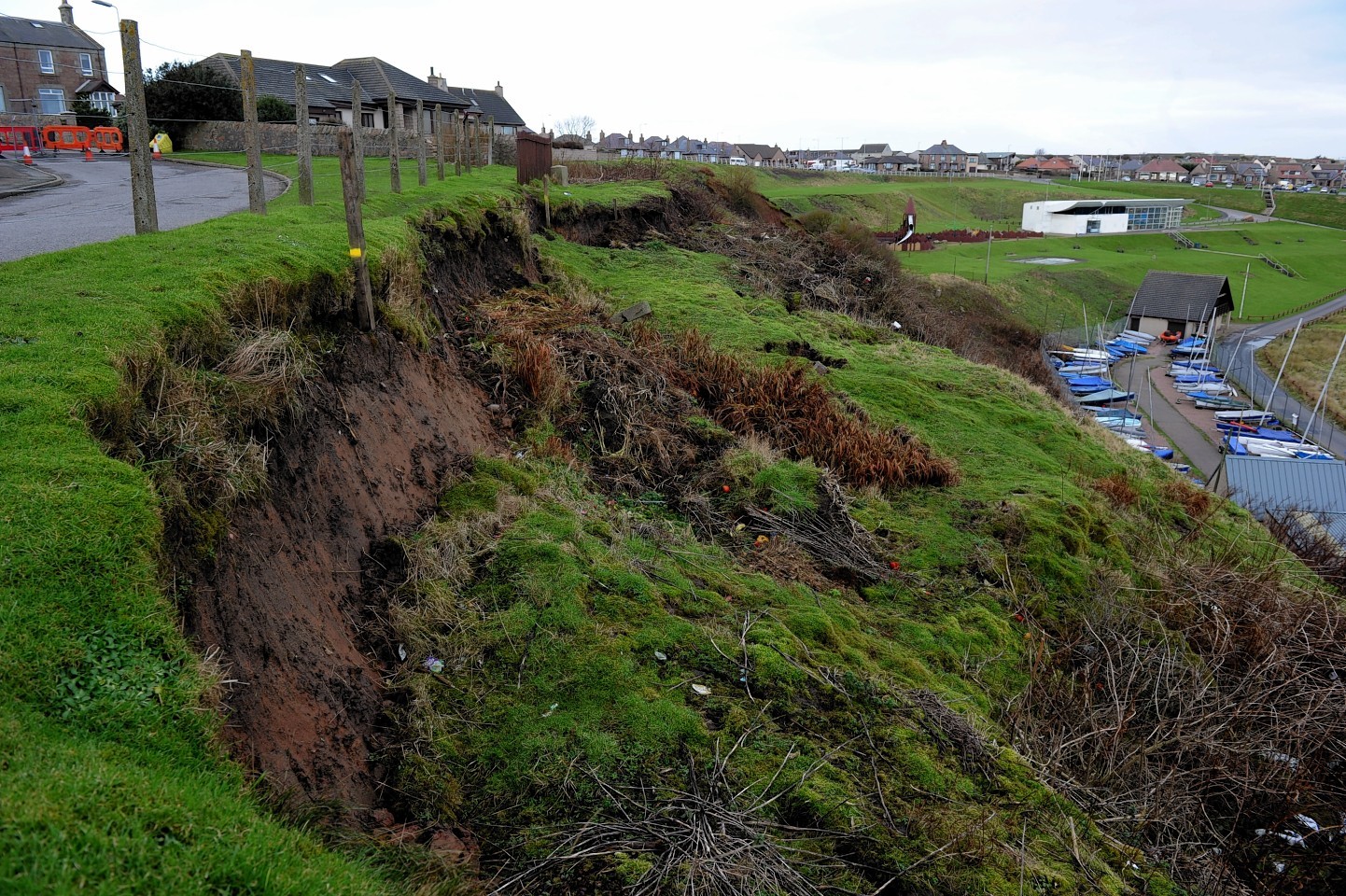A final decision on a long-running dispute over the closure of a road in a north-east town is due to be made by councillors next week.
A group of residents are hoping that a decision will be taken to keep the section of McKenzie Crescent open.
The street in Peterhead has been partially shut since a landslide in 2012 which forced marine safety firm Falck Nutek out of its base at the foot of the hill.
Now, at a meeting of the full council on Thursday, councillors will make a decision on whether or not traffic will be permanently banned from the road.
There are concerns from locals that the closure could affect waste collection, delivery services and make it difficult for older residents to access their homes.
In a report, Aberdeenshire Council’s infrastructure services director Stephen Archer acknowledged some residents would be affected if the change is approved.
“It is recognised that the prohibition of driving order will require a small number of individual residents and possibly visitors to modify their use of the road in this area,” he said.
“But the impact is considered to be minimal when considered against the alternatives.”
The local authority’s roads team added that the closure would increase the number of turning movements and suggested that this was not helped by “inconsiderate parking”.
But officers said cars and delivery lorries would still be expected to be able to turn at MacKenzie Court.
In 2013, a leaked report revealed that a series of blunders was to blame for the landslip.
An assessment of the site confirmed that the slopes were not investigated properly before excavation work began to erect a new boat shed.
Council officers also failed to highlight the possibility of a landslide before planning permission was granted, despite evidence of a history of ground movement in the area.
And last year, residents at the top of the hill said they were angry that the authority rejected calls to spend £610,000 to safeguard the site and reopen the street.
Neighbours have argued the lack of action has devalued their homes and made the properties almost impossible to insure.
